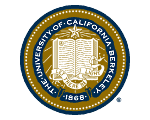Jack Culpepper
EECS/Redwood Center, UC Berkeley
Dissertation talk: Learned factorization models to explain variability in natural image sequences
Thursday 12th of May 2011 at 12:00pm
508-20 Evans
Robust object recognition requires computational mechanisms that
compensate for variability in the appearance of objects under natural
viewing conditions. Yet, these have proven to be difficult to
engineer. For this reason, the development of computational models
that achieve invariance to the types of transformations that occur
during natural viewing will both benefit our understanding of
biological systems and help to achieve the goals of computer vision.
This talk presents models that learn low dimensional representations
of the transformations occurring in dynamic natural scenes. Good
models of these transformations allow their effect to be compensated
for through an inference process, which jointly estimates a stable
percept and a parsimonious description of its appearance.
My models are based on the idea of factoring apart image sequences
into two types of latent variables: one that is relatively constant in
time (the presence of a particular object), and another that gives a
low dimensional time-varying representation of its appearance. Such a
two component model is a general mechanism for teasing apart the
causes that conspire to produce a time-varying image. When both
components are represented by linear expansions, the resulting
bilinear model can achieve some degree of image stabilization by
utilizing the transformation model to explain the translation motions
that occur in a small window of a movie. Yet, the recovered latent
factors exhibit dependencies that motivate the investigation of a
richer, exponential map as a second model for the dynamics of
appearance. In addition to the translation motions captured by the
linear appearance model, this richer model learns transformations that
can compensate for rotations, expansions, and complex distortions in
the data.
Join Email List
You can subscribe to our weekly seminar email list by sending an email to
majordomo@lists.berkeley.edu that contains the words
subscribe redwood in the body of the message.
(Note: The subject line can be arbitrary and will be ignored)

